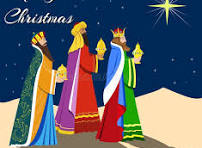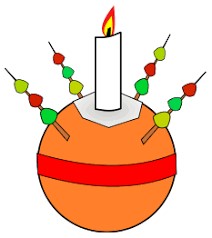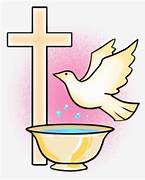Love and Justice

After Waitangi Day
Susan Adams
Mark 12:28-34
From the preamble to the Treaty in Māori
Galatians 5:13-15
Love and Justice
We have just lived another Waitangi Day with all the hype and the pain associated.
These days, unlike when I was at school, we can’t help but be aware of Waitangi Day - it’s even a public holiday!
In the 1980s the Treaty of Waitangi came into focus and was responded to in many and varied ways, the call was to honour the treaty.
For many of us the response to that call was to take up the call as a matter of justice. ‘Justice’ was a theological catch-cry. We had over recent decades shifted our theological emphases from personal salvation to justice for all: to peace through justice. Anti racism, feminism, becoming bicultural, and economic security were all on the table and being considered through a justice lens.
I think, as Christians, we have moved beyond that today.
I think we have been challenged to take a deeper and more radical theological dive through justice,
I think we are being challenged to remember the very core of our faith,
I think we are being challenged to love.
Love is one of the core attributes that we are called to express in our lives: one of the fundamental values we are called express. ‘God is love’ (1 John 4:8,16) the theologian John tells us as he tries to explain God.
And ‘Love one another and love your neighbour as yourself’ the quote ‘first and second commandment’ (John 13:34).
Love is a concern hundreds of times in the Bible. Love of God for humanity, love of the people for each other, love of humanity for God, love for the earth.
It seems to me, the unique contribution we can make to the national struggle around te Tiriti o Waitangi is to talk about love.
To talk about love shifts the conversation to a relational basis, it emphasises relationship. Talk about justice, and equality in particular, such as we have been hearing in talk around the Treaty Principles Bill, locates the conversation in mathematical terms, in economic terms. Equality is measured mathematically, it is a balancing act, and as such a far cry from the 1835 and later 1840 conversations which gave rise to the Te Tiriti. These conversations were relational and, I believe, it is in relational terms that we must find our way forward tangata whenua and tauiwi together.
And ‘love’ is how we do that. Think about love in your life: who you love and how that love is expressed…………
A mentor and friend of mine, Dr Carter Heyward says this about ‘love’
it is “a particular human experience of bridging differences, of reaching and being reached by persons beyond ourselves” and, whether human or divine, presupposes “the recognition of differentiation between and among persons.” (1) But is it Fair. Ed. Neil Darragh.P93
The recognition of difference, and our concern to ensure those who are different from us flourish in their own way as we have the opportunity to do, is fundamental to our Christian ideological and theological ethics.
I was mindful of this when considering the 1835 meeting of the Confederation of Chiefs, te Whakameninga, and the Declaration of Independence that emerged from that meeting of chiefs and was a the precursor to Te Tiriti o Waitangi.
Susan Healy, a NZ Dominican sister notes that “in that Declaration the chiefs expressed their commitment to the relationship of mutuality and trust that had been developed between the British monarchs and the Ngāpuhi Rangatira.” (2) The offer being made was that the governor would have the authority needed to take responsibility for his people who were now settling in pockets around Aotearoa. They were without the care and protection of any hapū or iwi as would have been appropriate within Māori protocol. She goes on to explain that this invitation meant the governor would sit as one of the chiefs in a role of reciprocal care and cooperation, and together they would support each other in ensuring the different protocols and boundaries of the various tribes were respected. We are told by Māori leaders that this was understood as a sacred covenant.
But we know, this understanding of a relationship of mutual care was not easily understood by the British leaders of the time who, it now seems, could not put aside their convictions that British systems of governance were superior, and quickly reverted to establishing power over te Whakameninga.
This set the basis for the struggles we are still grappling with today, the misunderstanding by Pakeha of the role of ‘difference’ as we grapple our way towards justice for everyone.
And so we circle back to love.
It seems to me the justice we speak of grows out of love. Justice is so much more than a mathematical balancing act: one for you and one for me! In many ways it is a nebulous notion with no precision or clear definition that we can apply in all circumstances, yet we all think we know what it means. Certainly it means desiring for the other, and making available, the very best that will support their capacity to flourish and reach their full potential. They may not do this of course, nor perhaps in the way we think best, but the conditions are there for it to be possible whether that is housing, education, land, health, financial security or freedom from fear.
There are at least three kinds of love referenced in the Bible: Eros, Philia, and Agape, or, physical, familial, and divine love. We mostly focus on agape, or divine love: the love of God for humanity and humanity’s reciprocal love for God. This love is expressed in ritual and in the way we care for and about others.
I contend; however we try to define love, it concerns itself with desiring the very best for the person or object of our love.
Further, I believe it is out of love, agape, that our demand for justice grows. ‘Justice’ that ensures the prerequisites for the well-being of those we love are available to them so they can flourish -this is what God desires we believe - “love one another as I have loved you” “God so loved the world that he sent his son that all may have life….” This love motivates us to act for justice!
We are still struggling for ways to show our love for those we share this land with, we are still struggling for the justice through which we all can flourish.
We who are tauiwi still have more work to do, more love to find, more difference to embrace before we can wholeheartedly celebrate on Waitangi Day.
I give the last word to Glynn, written in 1983 after his arrest in Waitangi along with seven others. Glynn and another student were arrested for an act of repentance at the morning service. They covered themselves in ashes.
“As I write now, I am not sure how we Pākehās live up to what we signed, but I am more convinced than ever that that is the way forward. Māori people have every right to celebrate that treaty if they wish but how can I as a Pakeha Christian come to a service of celebration without having first put things right with my brothers and sisters (Matt 5:23,24). I pray that one day we can together thank God for the relations between the races inhabiting Aotearoa.”
Glynn Cardy, p21-22 in What happened at Waitangi 1983.




